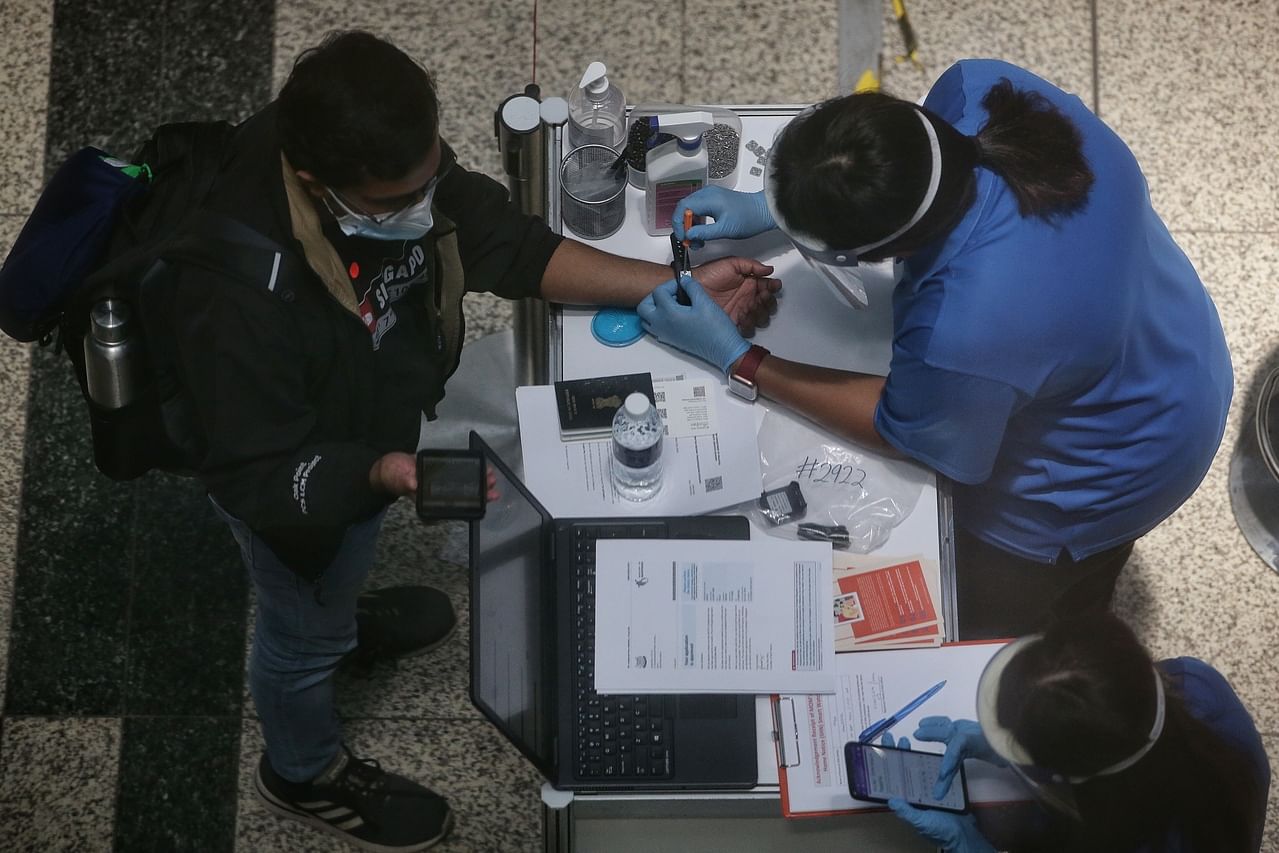askST: What is a stay-home notice and how is it enforced in Singapore?
SINGAPORE – Since Feb 18 last year, residents returning to Singapore have been put under stay-home notices (SHNs), a rule that has been extended to all travellers entering the country from March 20.
The SHN period can be spent in dedicated facilities or personal residences, depending on the individual’s travel histories. The government has been constantly updating quarantine requirements for travellers as the coronavirus situation develops overseas.
Who is in charge of enforcing SHN?
A SHN is enforced by the Immigration and Checkpoints Authority (ICA), the Ministry of Manpower (MOM) and the Ministry of Education (MOE), depending on the individual’s documentation for entry to Singapore.
MOM administers SHN for work pass holders, while MOE does so for student pass holders, including those with in-principal approval for their entry passes. ICA handles all other travellers.
How is it enforced?
Travellers in dedicated facilities are subject to both on-site and electronic checks.
The authorities can message, phone or video call travellers, and knock on their doors to ensure they are staying put during the SHN period.
All travellers under SHNs at dedicated facilities have been required to wear electronic monitoring devices since Aug 10 last year.
Children aged 12 or younger are exempt from this rule.
What are these devices?
The devices resemble wristwatches and come equipped with Bluetooth or GPS technology, and have to be worn throughout the typically 14-day stay-home period.
This is in addition to the text messages, voice and video calls, and house visits to check on those in dedicated facilities.
When are these devices issued?
The devices are issued to travellers at the checkpoints after clearing immigration. They then need to activate the devices to register on a mobile app once they reach their place of residence.
From Jan 18, all returning Singaporeans and permanent residents from the UK and South Africa have been subject to an additional seven-day self-isolation at their place of residence, following their 14-day SHN at dedicated SHN facilities.
What does this self-isolation entail?
During the additional seven-day self-isolation period, travellers are advised to stay in their own rooms and avoid contact with other people in the residence.
The Ministry of Health said their whereabouts will be closely monitored, through electronic means as well as physical spot-checks. They will also be required to undergo Covid-19 swab tests before the end of the isolation period.
Join ST’s Telegram channel here and get the latest breaking news delivered to you.
Source: Read Full Article



